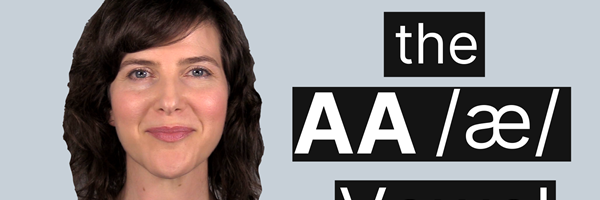(Video Transcript)
The schwa vowel is the UH /ə/ sound, like in the word about. It is the most common vowel in American English, and there are a couple of reasons for why that is.
Many American English words use the schwa
The first reason is there are many words in American English that have the schwa vowel in the standard pronunciation:
Banana, computer, again, control.
These words all contain the schwa UH /ə/ vowel in their standard pronunciation. And even though the schwa vowel sounds nearly identical to the UH /ʌ/ in butter vowel, these words don’t use that UH /ʌ/ butter vowel. They use the schwa. Why? The schwa UH /ə/ vowel is always unstressed, so in a word like banana, that has three syllables, the schwa vowel will be used when the UH sound occurs in an unstressed syllable. Banana has two schwa vowels - buh and nuh - and both of those syllables are unstressed.
The UH /ʌ/ in butter vowel can be stressed or unstressed (e.g. secondary stress), but it is usually stressed. That is the difference - the UH in butter vowel is almost always stressed, but the UH in about, the schwa, is always unstressed.
Word reductions become the schwa
Another reason why the schwa UH vowel is the most common vowel in American English is because of word reductions. In American English, some syllables are stressed, and some syllables are unstressed. When a syllable is unstressed, that syllable is also usually reduced. This means that the syllable is not fully pronounced - a sound might be dropped or a vowel might be shortened. And when a vowel is shortened, it almost always becomes the schwa vowel, uh. This is called a reduction, and it happens often in American English, and especially with function words, like for, can, he, she, it, etc.
Here’s an example. In the sentence, I can do it, the word can is often reduced to kun, I kun do it, I kun do it. UH, UH. Kun.
This is an example of how the AA vowel in can is reduced to the schwa vowel, UH. Kun, Kun.
Why do vowels reduce to the schwa?
So, when a vowel is reduced, it is usually reduced to the schwa sound, UH. But why the schwa sound?
Because the schwa sound is a neutral, relaxed sound in American English - the lips, tongue, and jaw are very relaxed when making this sound - so it is easier to say. A vowel like AA /æ/, like in the word have, requires more jaw opening, which makes it slightly harder to say. So when AA /æ/ is in an unstressed syllable, sometimes native speakers will reduce it to the schwa, UH, because the schwa is easier to say. This helps native speakers to say that syllable faster, which helps with the rhythm of American English. Stressed syllables receive the full pronunciation and the beat in spoken English, and unstressed syllables are said quicker, with the schwa vowel.
Here’s an example. The word have is a function word in this sentence: I have known her for years. In spoken English, function words, like have, are commonly unstressed, so that function word may also be reduced. It is common to reduce have to huv or just uv - I huve known her for years, I huve known her for years, I huve, I huve. The AA /æ/ vowel reduced to the schwa, UH. This helps the word to be said faster, and helps to give the rhythm in spoken English between stressed and unstressed syllables.
Thanks so much for watching! And I'd love to hear from you - contact me to learn how we can work together to perfect your American English pronunciation!



